Life
Sign up for our newsletter
We summarize the week's scientific breakthroughs every Thursday.
-
 Genetics
GeneticsEpigenetic marks may help assess toxic exposure risk — someday
Exposure to things in the environment may change chemical tags on DNA and proteins, but it’s still unclear how to use that data to assess health risks.
-
 Life
LifeEarly RNA may have used isolation strategy to defeat useless mutants
Temporary barriers help RNA escape shorter, faster-replicating parasites
-
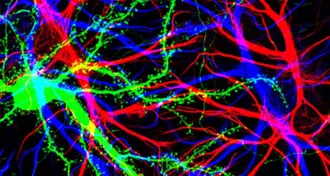 Neuroscience
NeuroscienceHealth official calls on neuroscience to fight mental illness
When it comes to mental health, all countries are developing countries, WHO official says, appealing to neuroscience for help.
-
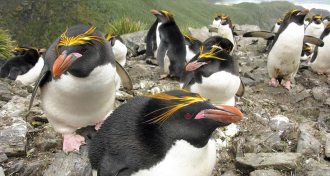 Animals
AnimalsWhy crested penguins lay mismatched eggs
After long migratory swims, crested penguins lay one small and one larger egg.
By Susan Milius -
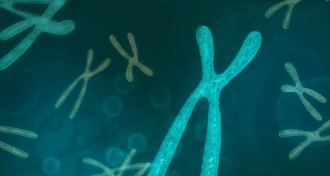 Life
LifeHaving an extra chromosome has a surprising effect on cancer
Extra chromosome copies may protect against, not cause, cancer.
-
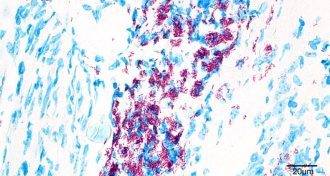 Ecosystems
EcosystemsLosing tropical forest might raise risks of human skin ulcers, deformed bones
Bacteria that cause Buruli ulcer in people flourish with tropical deforestation.
By Susan Milius -
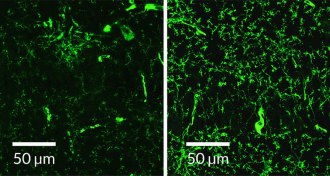 Neuroscience
NeuroscienceBrain waves show promise against Alzheimer’s protein in mice
Flickers of light induce brain waves that wash amyloid-beta out of the brain, mouse study suggests.
-
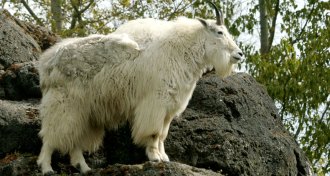 Animals
AnimalsWhy a mountain goat is a better climber than you
For the first time, scientists have analyzed how a mountain goat climbs a cliff. Big muscles in the shoulder and neck help a lot, they find.
-
 Life
LifeCell distress chemicals help embryos quickly heal
The chemicals trigger drawstring-like structures that help close wounds.
-
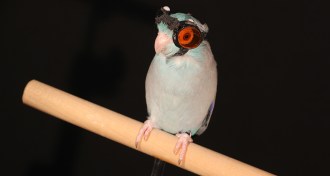 Life
LifeBird plus goggles equals new insight into flight physics
Slow-flying parrotlet produces vortices that explosively break up.
-
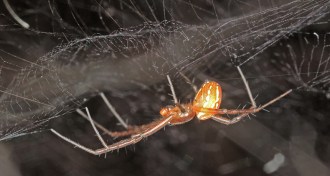 Animals
AnimalsFirst spider superdads discovered
Male spiders first known to give up solitary life for offspring care, often as a single parent.
By Susan Milius -
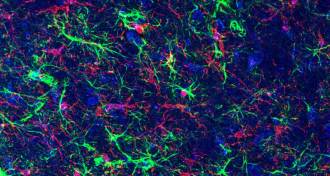 Neuroscience
NeuroscienceGut microbe mix may spark Parkinson’s
Parkinson’s disease symptoms might be driven by gut microbes